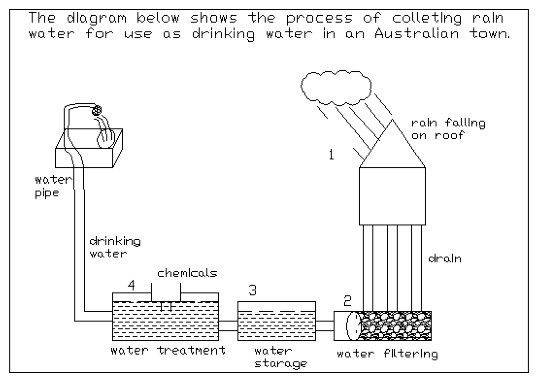梁丽萍老师根据网友和学生回忆的版本还原出了以下的简约版流程图,并附上了参考范文,供考生们参考。

The diagram illustrates how rain water is processed into drinking water by using different facilities in an Australian town.
There are four main stages in this process: catchment, filtration, storage and treatment. First of all, rain water is collected as it drips from the roof of the house, and then directed to the next stage through drains. In order to ensure that the rain water contains less contamination, it must be fully filtered in the second stage. After being filtered through screens and closed gutters in the filter, the rain water is delivered to a large container where it is carefully stored.
The rain water is not potable after the first two stages; therefore, it is necessary to conduct the part of treatment before it can be drunk by people. In the treatment stage, some chemicals are added for the sake of hygiene quality and safety. Eventually, the drinking water will be directed to residents' houses through water pipe, which will be used as drinking water.
Overall, the diagram shows rain water can be processed into drinking water through a relatively complicated process.












